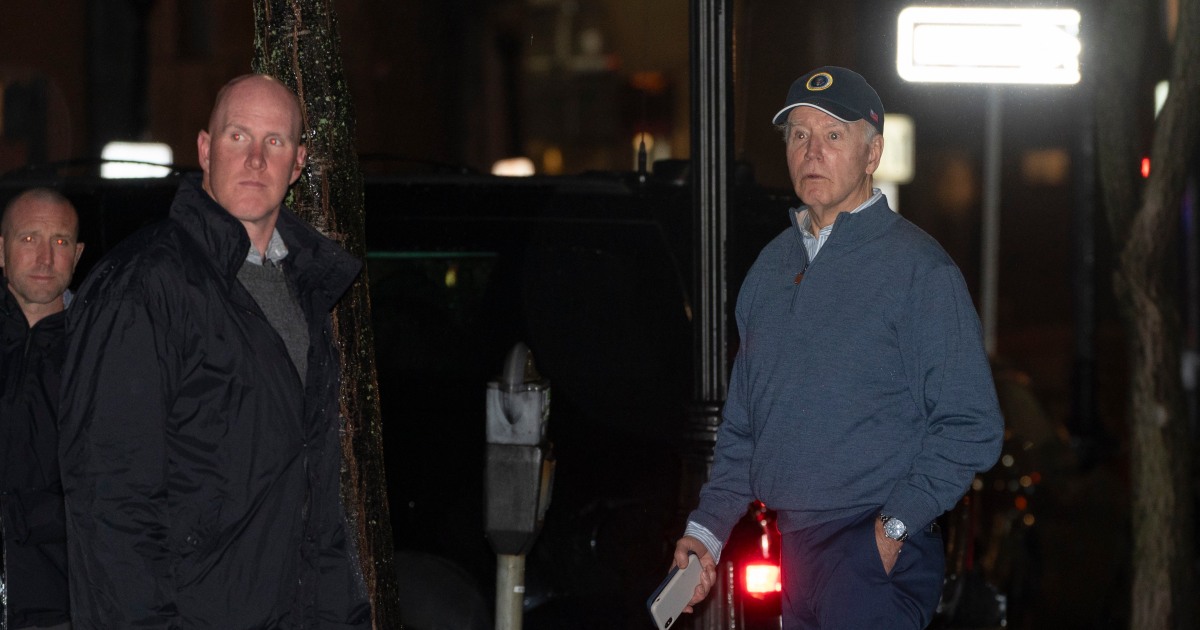It was not immediately clear why the sedan smashed into an SUV that was part of the motorcade. The driver was surrounded by agents who had their guns drawn.
A sedan smacked into a Secret Service vehicle that was part of President Joe Biden’s motorcade in Delaware on Sunday night.
Following the crash, U.S. Secret Service agents whisked Biden into a vehicle.
Agents quickly surrounded the sedan with guns drawn and aimed at its driver, who had his hands up. The cause of the crash was not immediately clear.
Special Agent Steve Kopek, a Secret Service spokesperson, said the vehicle that struck was securing Biden’s motorcade route.



Non-joke answer: Pardons are for a person’s actions not the person in general. He would need a second pardon.
Thats an interesting distinction :) Can you talk more about that?
Not sure what exactly you want me to touch on. But pardons can’t be for future actions.
Let’s say you rob a bank and get pardoned. Having received that pardon doesn’t mean you can go rob that bank again free of charge.
If you had robbed that bank again after getting pardoned you’d face prison time. But if the president happens to believe in
secondthird chances and grants you a second pardon for the second robbery you could walk free.Gotcha, ya I didn’t think it was like omnibus/universal immunity for future offences aha. That would be like…presidential immunity and even that’s not supposed to be a forever thing, shouldn’teven be allowed during or should be heavily qualified
Edit: found it interesting that pardons can actually halt the prosecutorial effort altogether, like prior to a verdict. Maybe there should be a cooling off period like requiring all oending litigation to play out and then by then see where everybody’s at.
Justice delayed/disrupted ⚖️ right?
Yeah the idea behind a pardon is that the head executive is basically saying that you’ve been punished enough and that no further prosecution will occur. It’s similar to how they can stay a death penalty. But the big downside is that accepting a pardon means accepting legal guilt. You can’t keep fighting a case saying you weren’t ever guilty.
For an example of how far pardons go look at Nixon. The case was still being built, and Ford (idiotically) deemed that proceeding with a trial of a former president over election misdeeds would do too much damage to the nation’s trust in its political system. Nixon didn’t stand trial. Nixon only pled guilty by acceptance of the pardon. But because of that, had he been able to run again (he’d hit his term limit) and tried, he would’ve had a court case over if his crimes prohibited him from running again, same as if he’d gone to prison for them.